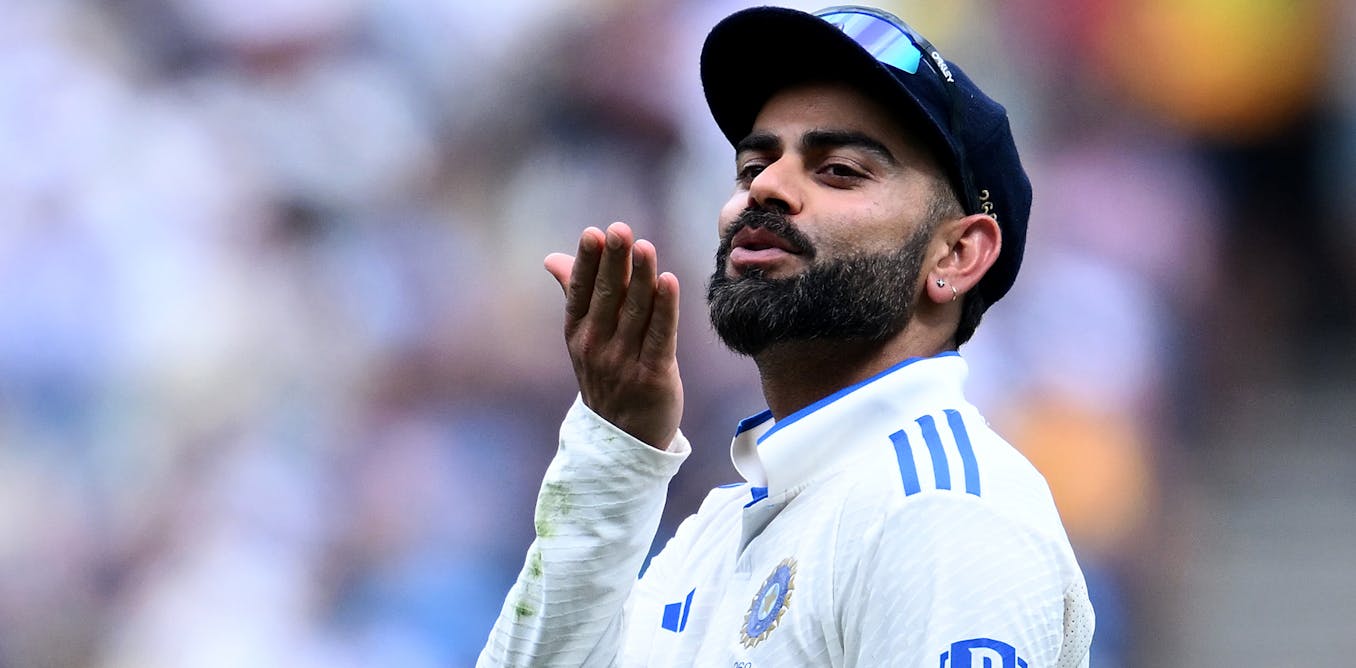Now Reading: Ferocity, fitness and fast bowling: how Virat Kohli revolutionised Indian cricket
-
01
Ferocity, fitness and fast bowling: how Virat Kohli revolutionised Indian cricket
Ferocity, fitness and fast bowling: how Virat Kohli revolutionised Indian cricket

Virat Kohli has declared his retirement from Test cricket on Monday, stating on Instagram that now was the “right time.” Although his recent poor Test form, mental fatigue, desire to spend more time with family, charity foundation work, and expanding business empire have been mentioned as other reasons for his decision. Kohli, known as “King Kohli,” has been a key player in the Indian batting lineup during his 14-year Test career, amassing 9,230 runs in 123 Tests with an average of 46.85 and 30 centuries. His absence will be sorely felt as India gears up to tour England next month.
The 36-year-old Kohli retired from Twenty20 Internationals last year after India’s second world title win but may continue playing one-day internationals. Throughout his career, Kohli has been considered the greatest Indian batsman of his generation, making his Test debut in 2011 and scoring centuries against every country he played against, including seven in Australia. He was at his peak between 2014 and 2019, averaging over 60 in Test cricket and being part of the “fab four” alongside Steve Smith, Kane Williamson, and Joe Root.
Kohli also excelled as India’s Test captain from 2014 to 2022, leading the team to significant victories and transforming its approach to Test cricket with a focus on fitness, training intensity, and fast bowling. Despite controversies stemming from his passionate and intense demeanor on the field, Kohli is recognized for reshaping Indian cricket and making Test cricket relevant in the modern era.
His retirement marks the end of an era for Indian Test cricket, as Kohli’s leadership and playing style have left an indelible mark on the sport. His impact extends beyond the field, as he is considered one of the greatest ambassadors of Test cricket, playing a pivotal role in maintaining the format’s significance in a T20-dominated era. Kohli’s legacy as a modern-day giant and a driving force in Test cricket is undeniable, with his influence transcending the sport and earning him a place among cricketing legends.






